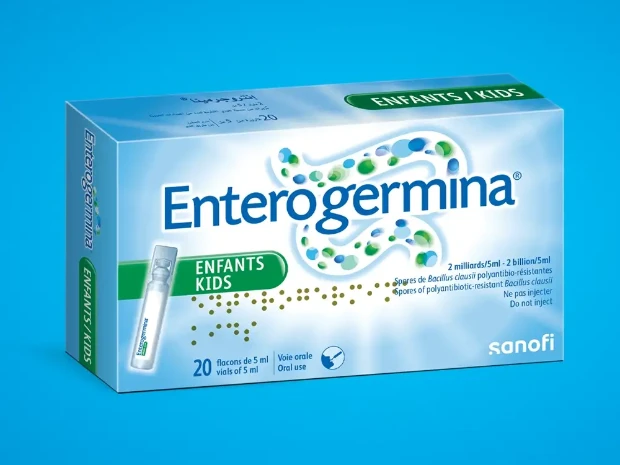5 min Read
Each person has between 300 to 500 different kinds of bacteria living throughout their body, but gut bacteria make up the largest number where they are found in the intestines and colon. There are many types of bacteria in Gut, many of them are highly helpful and even necessary for a healthy body, while some are toxic to human health.1
Gut Bacteria: All you need to know
There are trillions of microbes present in your gut. The majority of them are in the intestines located in a “pocket” of your large intestine called the cecum. It would be quite challenging to thrive without the gut bacteria as each of them play a different role in your body. For example, it helps in digestion, and improves the immune system, mental health, and heart health.2
Five Benefits of Gut Bacteria
Gut bacteria play very important roles in the human body. As humans grow, our gut bacteria expand to many different types of bacteria. This diversity is considered very beneficial for our health in some of the following ways, gut bacteria benefits include:2

1. Improve gut and digestion health
The digestive process of fibers in the gut depends on specific bacterial species. This procedure is crucial since fibers may reduce the risk of cancer, diabetes, heart disease, and weight gain. Bifidobacteria, one of the earliest forms of bacteria to start growing in children, also aids in the early development of babies by assisting them in the digestion of broken milk sugars, which are crucial for their healthy growth.2
Additionally, the microbiome can impact gut health and may contribute to intestinal illnesses including Irritable Bowel Syndrome (IBS) and inflammatory bowel disease (IBD). However, certain healthy bacteria can improve gut health and reduce symptoms of IBS. such as: Bifidobacteria and Lactobacilli.2

2. Improve immunological function
The microorganisms in your gut also regulate how well your immune system works. Through interactions with immune cells, the bacteria in your stomach can control how your body responds to infections. 2
A healthy interaction between the immune system and gut microorganisms is crucial. It helps the body respond to infections, tolerate benign germs, avoid an autoimmune reaction, and generally promote health. When everything is working as it should, the stomach sends out signals that support the development of a robust immune system and the control of immunological reactions. In exchange, the immune system helps the microbiome by introducing helpful microorganisms.3

3. Enhance brain health
There are numerous ways in which the gut microbiota can enhance brain health, by:2
A few types of bacteria can help in the production of neurotransmitters, which are compounds present in the brain. For instance, the antidepressant chemical serotonin is predominantly produced in the stomach.
The brain and intestines are physically connected by millions of nerves. Therefore, by controlling the impulses sent to the brain by these neurons, gut bacteria may also have an effect on brain health.
Numerous studies have shown that people with a range of psychiatric issues have different bacterial species in their stomachs than people who are healthy. Accordingly, gut flora may have an impact on mental health.

4. Decrease heart disease risk
In terms of cardiac health, gut bacteria have two opposing effects. Good gut bacteria like Lactobacilli may aid in lowering triglycerides and cholesterol while raising HDL cholesterol. As a result, heart disease risk is decreased. On the other hand, chemicals contained in red meat and other animal-based dietary sources turn into trimethylamine N-oxide (TMAO), which is implicated in blocked arteries and leads to heart attacks or strokes.2

5. Decrease diabetes risk
The gut flora may help regulate blood sugar, which may lessen the risk of developing type 1 and type 2 diabetes. It was shown that the variety of the microbiome significantly reduced before the onset of type 1 diabetes.2,8
It also found that the prevalence of a number of harmful bacterial species increased prior to the onset of type 1 diabetes. Another study found that even after ingesting the same foods, people’s blood sugar levels might vary dramatically. This could be caused by the kind of bacteria in their guts.2,7
How to Improve Your Gut Bacteria
In light of the information previously provided, maintaining a healthy balance in your gut flora is crucial for general wellbeing. So here are some strategies to enhance gut flora: 4
- Consume a variety of fruits and vegetables, such as peppers, tomatoes, and berries, to guarantee bacterial diversity.
- Make sure you get enough fiber. Considering that it encourages regular bowel motions, reduces cholesterol, and guards against blood sugar surges. For instance, berries, chickpeas, lentils, and whole-wheat pasta.
- Include fermented foods like yogurt, kimchi, and kombucha in your diet to boost gut flora and prevent the formation of harmful bacteria.
- Decrease stress and anxiety by releasing tension through relaxation techniques like meditation and deep breathing. You might also try to make sleep a priority and engage in regular exercise.
- Think about taking probiotics that contain live beneficial bacteria, which can help you attain or maintain a balanced, healthy gut microbiota.
Effect of probiotics in gut bacteria balance
By boosting immunity and managing the composition of the intestinal flora, probiotics improve gut bacteria. Probiotics can improve host defense by maintaining the intestinal epithelial barrier, preventing pathogens from adhering to the surface of the gut, and regulating and properly developing the immune system. Probiotics can also treat some diseases by modifying the gut flora and boosting human defenses. 5
One of the best probiotics that can be used is ENTEROGERMINA®, it maintains the right kind of gut flora balance, restores internal bacterial balance to help improve immunity, and helps in restoring the natural balance of gut bacteria.6
At the end
Healthy gut flora is crucial for general wellbeing. They improve blood sugar levels, immunological function, heart health, and gut health. Therefore, you should make every effort to optimize your gut flora, including thinking about taking antibiotics and consuming fermented foods that boost the number of healthy bacteria.
Browse Our Products
Enterogermina®’s range will scan the gut for intestinal flora imbalance and deliver billions of good bacteria to treat both the condition and associated symptoms. 9
- https://www.webmd.com/digestive-disorders/what-your-gut-bacteria-say-your-health , Last visit 8th November 2022.
- https://www.healthline.com/nutrition/gut-microbiome-and-health ,Last visit 8th November 2022.
- https://gilbertlab.com/immune-system/gut-microbiome-symbiosis/ , Last visit 8th November 2022.
- https://health.clevelandclinic.org/gut-microbiome/ ,Last visit 8th November 2022.
- https://www.ncbi.nlm.nih.gov/pmc/articles/PMC8512487/ , Last visit 8th November 2022
- https://www.enterogermina.in/product , Last visit 8th November 2022
- https://pubmed.ncbi.nlm.nih.gov/26590418/ , Last visit 9th November 2022
- https://pubmed.ncbi.nlm.nih.gov/25662751/ , Last visit 9th November 2022
- Enterogermina® 2 billion vials Patient Information Leaflet Last revised April 2022.
- Enterogermina® 6 billion sachets Patient Information Leaflet Last revised April 2022.
- Enterogermina® 2 billion capsules Patient Information Leaflet Last revised April 2022.



.webp/jcr:content/Enterogermina-AE-capsule.webp)